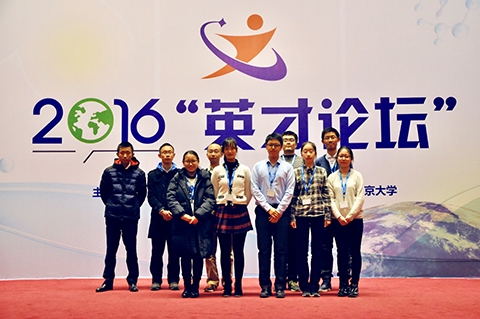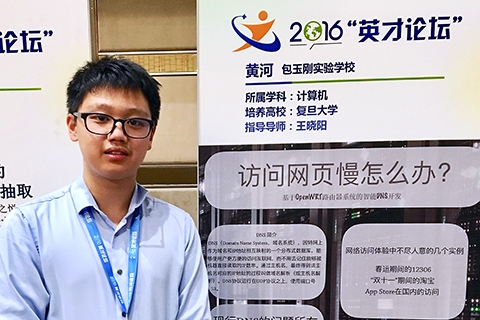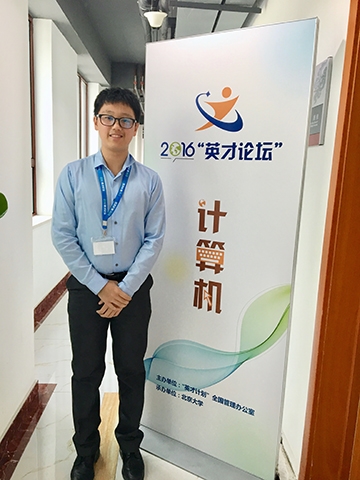
Pao School Year 11 student Peter was selected as one of twenty student representatives from China who will attend Intel’s International Science and Engineering Fair (ISEF). He is the only student representative from a Shanghai school. Peter earned the opportunity to attend the Intel fair after his project, Design and Construction of Smart DNS System Based on Distributed Smart Router and Cloud, was chosen as a finalist in the China Science Association International Youth Technology Competition. This project monitors air quality on Pao School’s Songjiang campus in real time.
The Intel International Science and Engineering Fair (ISEF) is the world’s preeminent global scientific research event for secondary school students. Every May, roughly 1,800 students compete for an average of US$4 million in prizes, which includes numerous scholarships and grants. According to Intel, awards are based on students’ abilities to address tough scientific questions, use genuine research practices, and develop solutions for future challenges.

Peter embarked on a journey of scientific discovery to reach ISEF. His scientific and technological acumen was recognised when he participated in Beijing University’s Talent Programme Forum along with nine other secondary school students from Shanghai in December. He was named an outstanding young scholar' at the forum. Thanks to Pao School’s emphasis on whole-person education, Peter has been in an ideal environment in which to cultivate his passion for science and apply it to solve pressing real-world problems. In this interview, we learn how Peter has become so successful.
Q: Why have you chosen to focus on science and how has Pao School helped you in this endeavour?
Peter: I am quite interested in computing, and information technology in general. My parents have always encouraged me to follow these interests. Pao teachers provided me with strong support in my scientific pursuits.
My first IT teacher Granham Topp has influenced me a lot. Thanks to his encouragement, I was chosen to participate in the Science and Technology ‘Explore and Discover’ trip when I was in Year 6.
I am an active person, and since entering Pao School, I have seized the opportunities available to me here. I have been like a fish in water at Pao School. I especially enjoy the chance to do hands-on activities here; for example, I constructed a kaleidoscope and learned how to fence.
I love to solve real-world problems. I remember when I was in Year 7, I attended a night football game and I saw there was a safety problem: The PE teacher needed to go to a small control room under the platform to turn off the lights, even when it rained.
After observing this situation, I thought there should be a way to help the teacher turn off the lights remotely – either when the teacher is in his office or by using his smartphone. I then prepared a project and showed a model to the PE teacher, student life director and headmaster. Although this project was not implemented – there was some difficulty with the third-party vendor – I did not get discouraged.
I learned from this experienced and used it as the foundation from which to launch my campus weather station project.
In late 2014, Shanghai was faced with heavy air pollution. I found that Pao School’s Songjiang campus was using data from 50 km away to determine air quality – and whether the air was sufficiently good for outdoor activities. Yet in reality the air in Songjiang was much better than in downtown Shanghai. In fact, there was a difference in air quality between the old and new areas of Songjiang.
With this in mind, I set out to build an air quality monitoring system for Pao School. My IT teacher Mr MacLeon was very supportive of me, and my parents helped with funding. From the end of 2014 to May 2015, I accomplished the first phase of the project: design, purchasing of materials, coding and equipment installation. After the new semester began, I worked together on the coding part of the project with some classmates; the headmaster was very supportive of us. The air-quality monitoring system is now operational at Pao School. To find out the air quality on campus in real time, you simply visit the YKPS-Smart-Campus section of our WeChat account.
